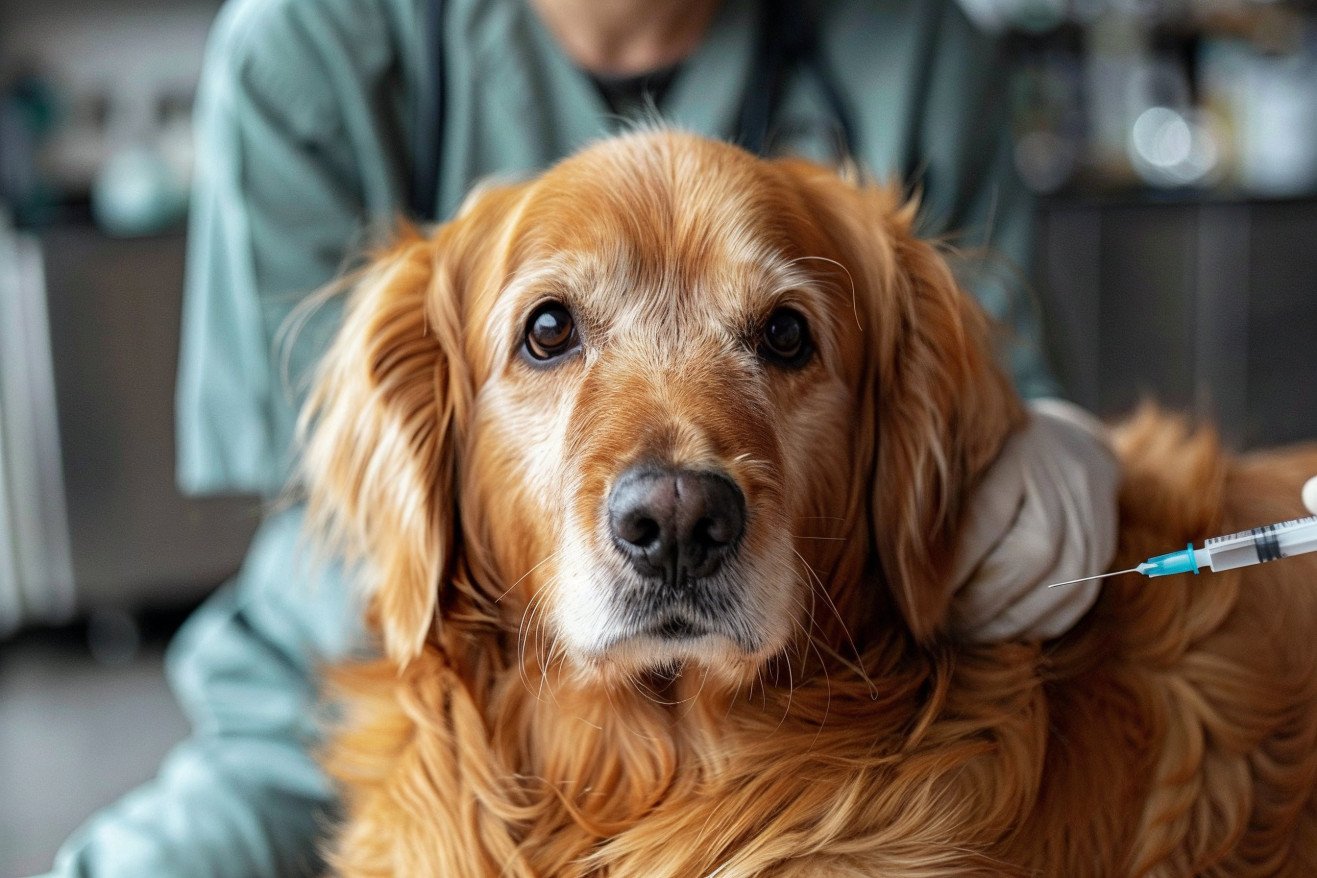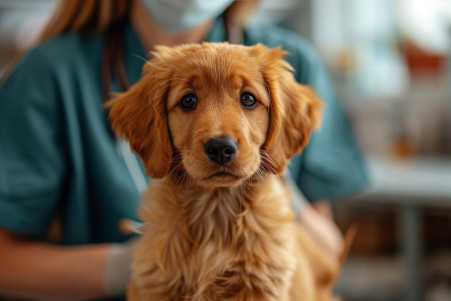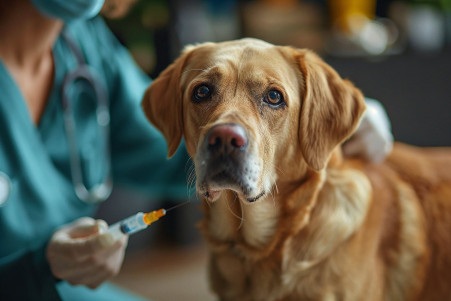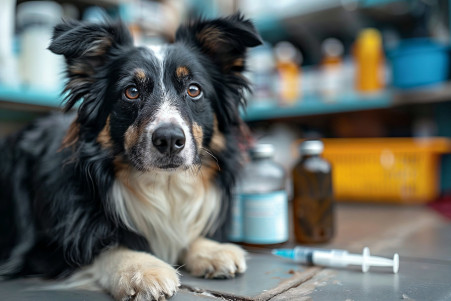Lepto Vaccine for Dogs: What You Need to Know
31 May 2024 • Updated 30 May 2024

Dogs bring so much joy into our lives, but it's also important to know how to keep them safe and healthy. One way to do that is to learn about the lepto vaccine for dogs. The lepto vaccine, also known as the lepto shot, is a vaccine that protects dogs from leptospirosis, a bacterial infection that can be deadly and is zoonotic, meaning it can be transmitted from animals to humans. The vaccine works by stimulating the immune system to produce antibodies that can fight off the various serovars of the Leptospira bacteria that can be found in water or damp soil.
In this article, we'll delve into a review of the literature, including information from veterinary professionals and scientific research, to give you a better understanding of leptospirosis, the lepto vaccine, and the vaccination schedule that's recommended. By learning about the importance of this vaccine, you'll be better prepared to make sure your dog is protected from this potentially life-threatening disease. Our goal is to give you the information you need to make the best choices for your dog's health.
What is a lepto shot for dogs?
What Is Leptospirosis? A Potentially Fatal Bacterial Infection
Leptospirosis is a potentially fatal bacterial infection that can cause serious illness in dogs. According to Small Door Veterinary, it is caused by the Leptospira bacteria and can result in kidney and liver failure. Leptospirosis is transmitted through contact with water that has been contaminated by the urine of infected animals, including wildlife, and can be found in rivers, lakes, and wet soil.
Dogs are at risk of contracting leptospirosis if they drink from contaminated water sources, live in or visit rural areas, or come into contact with wildlife or farm animals, says One Health. Symptoms of leptospirosis include vomiting, abnormal bleeding, loss of appetite, lethargy, fever, jaundice, and organ failure. In fact, up to 25% of dogs with leptospirosis can die from the disease if it is not treated, according to Small Door Veterinary.
Leptospirosis is a zoonotic disease, which means it can be transmitted from animals to people, and therefore is a public health concern, according to Michigan State University. Early detection through blood tests and treatment with antibiotics and supportive care are important for recovery. Vaccination is an important tool in preventing this potentially life-threatening bacterial infection in dogs.
When to Get the Vaccine and How Often
As stated by Pumpkin, the leptospirosis vaccine for dogs requires an initial series of two vaccines that are given 4 weeks apart, and the first vaccine can be administered at 12 weeks of age or older. This initial vaccination schedule is designed to help the dog's immune system create antibodies to the Leptospira bacteria.
As outlined by the American Veterinary Medical Association, annual booster shots are necessary to ensure that the dog remains immune to the disease since the vaccine's effectiveness can wane over time. According to the VCA Animal Hospitals, the four-serovar leptospirosis vaccine, which protects against a wider variety of Leptospira serovars, is the only vaccine that is currently recommended by veterinary professionals.
It's important to work with a veterinarian to determine the right vaccination schedule for a dog based on the dog's specific lifestyle and risk factors, as suggested by Pumpkin. This will help determine whether the leptospirosis vaccine is needed and which version of the vaccine will be most effective.
Potential Risks and Safety Precautions
As stated by Hendren's Helpful Hints, the most common side effects of the leptospirosis vaccine are "discomfort and local swelling at the vaccination site, mild fever, and decreased appetite and activity." On the other hand, although very rare, the most serious side effects that could occur are "persistent vomiting or diarrhea, hives, swelling of the muzzle, face, neck, or eyes, severe coughing or difficulty breathing," according to the AVMA brochure on vaccine reactions.
As BeChewy points out, the leptospirosis vaccine is a "killed vaccine" that contains inactivated Leptospira bacteria, so it's no more reactive than a standard rabies vaccine. Still, it's important to watch for any abnormal reactions in dogs and contact a vet if there are any concerns. Vets like Dr. Johnston also stress the importance of adhering to the recommended vaccination protocol, which includes the initial two-dose series and annual booster shots, to ensure that dogs are protected.
Although the leptospirosis vaccine is generally safe and effective, Daily Paws points out that it isn't 100% effective, since it only protects against the four most common Leptospira serovars. As a result, the decision to vaccinate should be based on a discussion with a vet, taking into account a dog's individual risk factors and lifestyle.
Risk Factors and Vaccination Recommendations
All dogs are at risk of leptospirosis, but there are certain lifestyles and environments that are at a higher risk, according to the AVMA. Dogs that live on farms, are exposed to wildlife and rodents, swim in contaminated water, or hunt small mammals are at a higher risk of contracting the disease. According to the ASPCA, pets can be exposed through ingesting contaminated water, soil, or food, or even through an infected bite.
While no dog is immune, the INVMA recommends vaccinating any dog that goes outside, even if it's just to the backyard. It's important to work with a veterinarian to evaluate the dog's risk factors and determine the best vaccination schedule. By knowing the risk factors and being proactive, dog owners can help prevent their pets from getting this dangerous and potentially fatal disease.
Prevention and Responsible Pet Ownership
While vaccination is the most effective way to prevent leptospirosis in dogs, it is not the only way. The CDC also recommends that pet owners avoid taking their dogs to areas with standing water, secure their garbage to prevent rodent infestations, and minimize their dogs' contact with wildlife, all of which can help reduce the risk of exposure to the Leptospira bacteria.
Responsible pet ownership is also important to the prevention of leptospirosis. The CDC urges dog owners to keep their pets on a leash and clean up after them to prevent the spread of the disease. One Health notes that environmental management and rodent control are also important in reducing the risk of leptospirosis in dogs and their human companions.
In the end, it is up to pet owners to be aware of the risks of leptospirosis and to make sure their dogs are vaccinated and to take them to the vet as soon as possible if they show signs of the disease, including vomiting, lethargy, and jaundice. This is important because, as the CDC points out, early treatment can prevent severe organ damage and even death.
Conclusion: Keeping Your Dog Safe
The leptospirosis vaccine is an important tool in protecting our dogs from this dangerous bacterial disease. By learning about the risks of leptospirosis and the importance of prevention, pet owners can make sure their dogs are safe from harm.
It's important to work with a veterinarian to determine the right vaccination schedule for a dog based on their specific needs. In addition, regular booster shots and responsible pet ownership, such as avoiding areas where the bacteria may be present and minimizing contact with wildlife, will help further reduce the risk of this deadly disease.
As pet parents, we have the ability to ensure our dogs live long, healthy lives. By making sure our dogs are vaccinated against leptospirosis and taking other preventive measures, we can make sure our dogs are as safe as possible.


